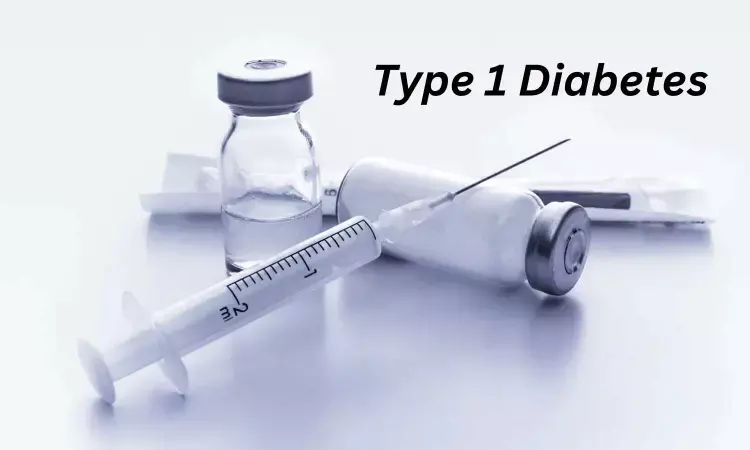- Home
- Medical news & Guidelines
- Anesthesiology
- Cardiology and CTVS
- Critical Care
- Dentistry
- Dermatology
- Diabetes and Endocrinology
- ENT
- Gastroenterology
- Medicine
- Nephrology
- Neurology
- Obstretics-Gynaecology
- Oncology
- Ophthalmology
- Orthopaedics
- Pediatrics-Neonatology
- Psychiatry
- Pulmonology
- Radiology
- Surgery
- Urology
- Laboratory Medicine
- Diet
- Nursing
- Paramedical
- Physiotherapy
- Health news
- Fact Check
- Bone Health Fact Check
- Brain Health Fact Check
- Cancer Related Fact Check
- Child Care Fact Check
- Dental and oral health fact check
- Diabetes and metabolic health fact check
- Diet and Nutrition Fact Check
- Eye and ENT Care Fact Check
- Fitness fact check
- Gut health fact check
- Heart health fact check
- Kidney health fact check
- Medical education fact check
- Men's health fact check
- Respiratory fact check
- Skin and hair care fact check
- Vaccine and Immunization fact check
- Women's health fact check
- AYUSH
- State News
- Andaman and Nicobar Islands
- Andhra Pradesh
- Arunachal Pradesh
- Assam
- Bihar
- Chandigarh
- Chattisgarh
- Dadra and Nagar Haveli
- Daman and Diu
- Delhi
- Goa
- Gujarat
- Haryana
- Himachal Pradesh
- Jammu & Kashmir
- Jharkhand
- Karnataka
- Kerala
- Ladakh
- Lakshadweep
- Madhya Pradesh
- Maharashtra
- Manipur
- Meghalaya
- Mizoram
- Nagaland
- Odisha
- Puducherry
- Punjab
- Rajasthan
- Sikkim
- Tamil Nadu
- Telangana
- Tripura
- Uttar Pradesh
- Uttrakhand
- West Bengal
- Medical Education
- Industry
MASLD Linked to Elevated ASCVD Risk in Type 1 Diabetes Patients: Study

MASLD (metabolic dysfunction-associated steatotic liver disease) is linked to elevated ASCVD Risk in Type 1 diabetes patients suggests a new study published in the Cardiology Diabetology.
This study aimed to investigate the correlation between metabolic dysfunction-associated steatotic liver disease (MASLD) and atherosclerotic cardiovascular disease (ASCVD) in individuals with type 1 diabetes (T1D). Adults with T1D (n = 659) were consecutively screened for liver steatosis via abdominal ultrasound.
The presence of macrovascular disease (including coronary artery disease [CAD], peripheral artery disease [PAD], or ischaemic stroke [CVA, cerebrovascular accident]) was identified via electronic medical records. The 5- and 10-year risks of fatal/nonfatal ASCVD were assessed via the Steno Type 1 Risk Engine. Insulin resistance was assessed via the estimated glucose disposal rate (eGDR). Results: The metabolic dysfunction-associated steatotic liver disease prevalence was 16.8%.
The prevalence of composite atherosclerotic cardiovascular disease, CAD, PAD and CVA was greater in people with metabolic dysfunction-associated steatotic liver disease. The 5-year and 10-year risks of atherosclerotic cardiovascular disease were greater in those with metabolic dysfunction-associated steatotic liver disease. Metabolic dysfunction-associated steatotic liver disease was associated with prevalent atherosclerotic cardiovascular disease, independent of age, sex, diabetes duration, smoking, statin use, LDL-cholesterol, the glomerular filtration rate, albuminuria, and metabolic syndrome.
Metabolic dysfunction-associated steatotic liver disease is associated with both an increased prevalence of atherosclerotic cardiovascular disease and an increased calculated risk of fatal/nonfatal atherosclerotic cardiovascular disease in people with T1D.
Reference:
Mertens J, Weyler J, Dirinck E, Vonghia L, Kwanten WJ, Van Gaal LF, De Winter BY, Francque S, De Block C. Increased prevalence and risk of atherosclerotic cardiovascular disease in individuals with Type 1 diabetes and metabolic dysfunction-associated steatotic liver disease. Cardiovasc Diabetol. 2025 May 29;24(1):230. doi: 10.1186/s12933-025-02764-y. PMID: 40442720; PMCID: PMC12124096.
Dr. Shravani Dali has completed her BDS from Pravara institute of medical sciences, loni. Following which she extensively worked in the healthcare sector for 2+ years. She has been actively involved in writing blogs in field of health and wellness. Currently she is pursuing her Masters of public health-health administration from Tata institute of social sciences. She can be contacted at editorial@medicaldialogues.in.
Dr Kamal Kant Kohli-MBBS, DTCD- a chest specialist with more than 30 years of practice and a flair for writing clinical articles, Dr Kamal Kant Kohli joined Medical Dialogues as a Chief Editor of Medical News. Besides writing articles, as an editor, he proofreads and verifies all the medical content published on Medical Dialogues including those coming from journals, studies,medical conferences,guidelines etc. Email: drkohli@medicaldialogues.in. Contact no. 011-43720751


